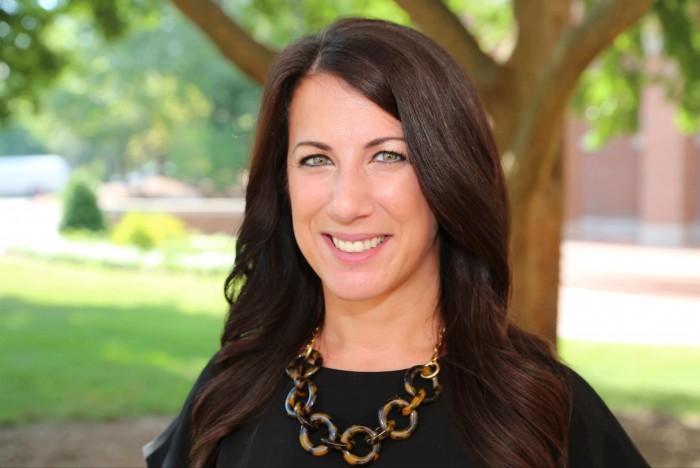The first admissions question of the year comes from Indian applicant Sikander Hayat (pictured).
Sikander has a Masters of Commerce from Punjab University and currently works as an accounts officer. He also holds a certificate in audit and assurance and is a member of a number of financial associations including the UK Institute of Financial Accountants.
His applicant question is answered by Danielle Richie, senior associate director of MBA admissions at UNC Kenan-Flagler Business School. Danielle has been overseeing MBA applications at Kenan-Flagler for almost a year, but has a decade of experience working in higher education and, more recently, has focused on international MBA recruitment in more than 15 countries.
Applicant Question of the Week:
Dear BusinessBecause,
My academic background is a Masters in Commerce, and I have a GPA 3.05. I'm also accredited by a number of international financial bodies. Am I qualified to do an MBA? How do US business schools consider applications from international students with non-US qualifications?
The Answer:
This is a great question and one I receive often from international applicants applying to MBA programs. You are wise to evaluate your background and make plans before starting the application process to business school.
First things first: Anyone can apply to business school and I would not discount your academic or professional background because it is international-based. As a member of the admissions committee, I review applications from India and the prospective students have a variety of backgrounds: family business, non-profit, professional to bachelor’s degrees in engineering, business and literature. This is true of international and domestic applicants.
I understand that you have hesitations because your accreditations are non-transferable to the US, but that does not mean the admissions committee will toss out your application. You will want to tailor your application to highlight your achievements and not place yourself into a silo of 'just being an accountant or engineer from India' when you are more than just that. Look beyond the job title and focus more on your role and responsibilities within your functional area and industry.
Many Indian applicants who I have worked with tend to place themselves into that category. I encourage you to step outside the box and look beyond stereotypical U.S. qualifications for business school:
1. Career Goals
The admissions committee will want to know about your career aspirations. If you are interested in continuing to pursue Accounting or Finance, then the admissions committee will take note of accreditations that you have achieved, as this will help strengthen your profile because you have shown interest in a field that you want to continue to grow in. If you are looking to go into Marketing, then the admissions committee will look for transferable skills related to the function or industry you are hoping to transition into.
2. Non-US qualification vs. US qualifications
Depending on the type of international accreditations you have, you will see that some certifications will be accepted globally based on affiliations. For instance, Pakistan Institute of Public Finance Accountant (PIPFA) has an affiliation with the International Federation of Accountants (IFAC), which can be a valuable resource for you during the application process and post-MBA career.
3. Academics
You mentioned your GPA and that you hold a Master’s degree in Commerce. This is important because some US schools will not accept a three-year degree from India. Having this additional year of education will benefit you and allow you to apply to more programs. I recommend that you look at your wish list of business schools and research what degrees they will accept. This can help narrow your search.
Certifications can vary in the US, too! If you were planning to be a lawyer or teacher, certifications and requirements vary from state to state in the US.
The last thing I want to share with you is, be yourself. The application is your opportunity to highlight your talents, personality and passions. Take the time to tell your special story and include important details such as your accreditations, growth in your career and skills.
Ask an Admissions Expert a Question!
Next week, we'll have Jessica Dowling, MBA admissions director at University College Dublin: Smurfit Business School, here to answer any of your questions about applying to business school!
Jessica has been at Smurfit for almost a year, and before that was responsible for the delivery of national postgraduate training programs for the Royal College of Physicians Ireland.
For the chance to have your question submitted to Jessica, head over to our Twitter, Facebook, or LinkedIn pages, send us an email to info@businessbecause.com, or simply post a comment below!
RECAPTHA :
cd
2a
60
b8










